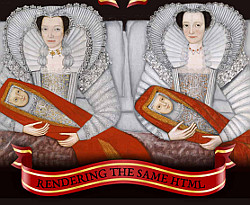 Do you want the state of a web page to be rendered by both the client and the server side? Is having the state of a JavaScript rendered web page to be controlled by the page’s query string important to you? Is important for you to ensure that your page’s state can be shared correctly via email and social media? If you want all of this without being tied into any specific framework (e.g. React, jQuery, Angular, etc) and done using progressive-enhancement, read on.
Do you want the state of a web page to be rendered by both the client and the server side? Is having the state of a JavaScript rendered web page to be controlled by the page’s query string important to you? Is important for you to ensure that your page’s state can be shared correctly via email and social media? If you want all of this without being tied into any specific framework (e.g. React, jQuery, Angular, etc) and done using progressive-enhancement, read on.
Making Framework Agnostic Isomorphic Web Applications with Query Strings and HTML5 pushState
Tags: Events · Events · forms · HTML5 · pushState
Fixing Cross-Browser Issues With CSS3 Viewport Units in IE9+ and Safari for iOS
 With viewport units, you can describe width, height, font-size and other CSS styles as percentages of the viewport width and height. There are, however, a few nasty gotchas when it comes to using them in iOS Safari and IE9 and 10. They also don’t always play nice in CSS3
With viewport units, you can describe width, height, font-size and other CSS styles as percentages of the viewport width and height. There are, however, a few nasty gotchas when it comes to using them in iOS Safari and IE9 and 10. They also don’t always play nice in CSS3 calc() statements and don’t work at all in IE Visual Filters. Using them in iframes can also be problematic. This post talks about how to work around these issues easily using a JavaScript buggyfill (not polyfill). I have used viewport units in production sites today, and now you can too, on any phone or device used in the wild today.
Tags: CSS · CSS3 · IE Visual Filters · math · viewport units
 @zoltandulac
@zoltandulac
 @zoltandulac
@zoltandulac Zoltan Hawryluk
Zoltan Hawryluk